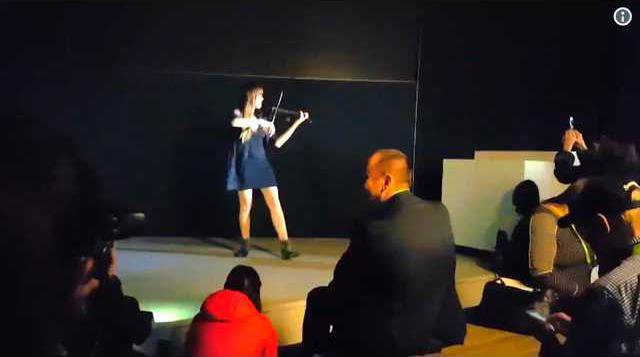It seems the Consumer Electronics Show ran out of power.
The CES 2018 event experienced a blackout Wednesday, putting one of the worlds largest displays of tech and electronic devices at a standstill for nearly two hours.
According to CNBC, an isolated power outage shut down the event at the Las Vegas Convention Center. Event officials said they were still investigating how the power went out.
After about an hour, only the south and north halls in the plaza were without power. Other areas had lights and working electronics. Samsung, Intel, LG and Panasonic were among the tech companies that lost power.
The CES event draws tech companies from all over the world. It hosts close to 170,000 visitors with more than 4,000 display booths, CNBC reported.
The outage is a bit ironic, given CES status as one of the worlds biggest technology conferences, according to Geek Wire.
But some companies had fun with the outage. Intel poked fun at the situation with its own set of tweets, calling the blackout the best new device of the event.
At Intels booth, a woman played the violin to entertain the attendees caught in the dark.
Similarly, a juggler made the most out of the lights-out moment by, well, juggling.
The power outage wasnt the only mishap of the week. Google shut down its outdoor display after heavy rain hit Las Vegas, according to Business Insider.
Google employees used buckets to empty the water from the display.
Similarly, the hotel parking lot for Harrahs Las Vegas casino became a flood zone during the storm.
The CES 2018 event experienced a blackout Wednesday, putting one of the worlds largest displays of tech and electronic devices at a standstill for nearly two hours.
According to CNBC, an isolated power outage shut down the event at the Las Vegas Convention Center. Event officials said they were still investigating how the power went out.
After about an hour, only the south and north halls in the plaza were without power. Other areas had lights and working electronics. Samsung, Intel, LG and Panasonic were among the tech companies that lost power.
The CES event draws tech companies from all over the world. It hosts close to 170,000 visitors with more than 4,000 display booths, CNBC reported.
The outage is a bit ironic, given CES status as one of the worlds biggest technology conferences, according to Geek Wire.
But some companies had fun with the outage. Intel poked fun at the situation with its own set of tweets, calling the blackout the best new device of the event.
At Intels booth, a woman played the violin to entertain the attendees caught in the dark.
Similarly, a juggler made the most out of the lights-out moment by, well, juggling.
The power outage wasnt the only mishap of the week. Google shut down its outdoor display after heavy rain hit Las Vegas, according to Business Insider.
Google employees used buckets to empty the water from the display.
Similarly, the hotel parking lot for Harrahs Las Vegas casino became a flood zone during the storm.








